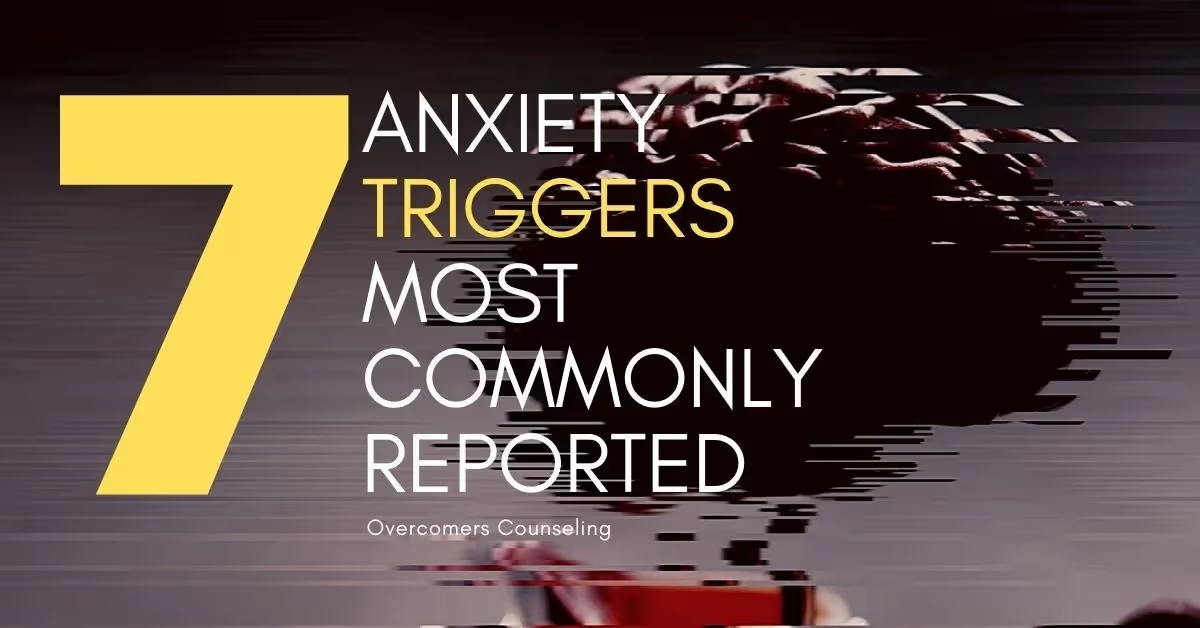Everybody's experience with anxiety is as unique as the person, but what are the 15 anxiety triggers most commonly reported? You may be surprised to learn...

Everybody's experience with anxiety is as unique as the person, but what are the 15 anxiety triggers most commonly reported? You may be surprised to learn that there are many factors that come into play when it comes to anxiety-related triggers and how they impact people the most. Here, we will examine the triggers and how people may readily identify them before their anxiety worsens.
Drinking excessive amounts of caffeine can wreak havoc on a person's stress and anxiety levels. The reason that this happens is that caffeine increases the levels of epinephrine in the body. This is significant because epinephrine controls the "flight or fight" response in the body, which can significantly impact a person's stress levels.
Many people are uneasy in large gatherings of people. For some, the experience can be incredibly stressful and can make them feel anxious. People who experience anxiety related to crowds may feel as if everybody is looking at them or talking about them.
Financial difficulties can make people feel like their safety and security are threatened. While most people worry about finances at some point in their life, for others, it becomes an excessive worry. If you find yourself losing sleep or unable to perform your regular activities, then this may mean that your financial situation is causing anxiety.
Medical diagnosis may leave people feeling out of control of their bodies. For some people, it can be overwhelming deciding what to do as far as treatment options, or in severe cases, know how to plan for their decline in the coming months. It is not uncommon for people to experience anxiety due to financial and emotional impacts that certain diagnosis can have on the patient as well as their families.
First-time parents are sometimes overwhelmed by the many changes that occur at once. Some people may struggle with the responsibility and financial implications of raising a child. For women, anxiety may be triggered by hormonal changes that occur during pregnancy as well.
Tests can certainly impact a person's stress level. Any test may cause people to worry about the outcome or what it could mean for their future. Timed tests can also add another layer of anxiety that may be difficult for individuals to overcome in the days or weeks leading up to the test.
Physical or emotional abuse can be a trigger for anxiety. Some people may be triggered based on past experiences, witnessing another person's abuse, or the fear of abuse. Things such as yelling, slamming doors, or throwing objects could cause someone to feel an enormous amount of anxiety.
Some triggers can be avoided altogether, but some may occur as you move naturally through your life. To better understand your triggers or what you should do about them, it's best to speak to a licensed therapist to learn your best strategy moving forward.
If you think you're dating a narcissist, the best thing you can do is to consult with a mental health professional. They can help you confirm whether or not your partner is a narcissist and provide you with guidance on how to deal with them.
It can be difficult to deal with a narcissist, but it's important to be aware of their tactics so you can protect yourself. Try to get them to see things from your perspective and avoid arguing with them. Set boundaries and stick to them. Make sure you have a support system of friends or family you can rely on.
A cheating narcissist is an individual who possesses narcissistic traits and engages in infidelity. They often display an inflated sense of self-importance, poor impulse control, and use manipulation tactics to maintain relationships while pursuing other romantic or sexual interests.
Dealing with a narcissistic sibling can have severe effects on mental health. The constant emotional abuse can lead to issues like anxiety, depression, and low self-esteem. It's important to seek support for your emotional well-being, which might include seeking therapy.
While both male and female narcissists exhibit similar traits like a sense of entitlement, lack of empathy and need for admiration, there can be differences. Female narcissists, for instance, might use their relationships with other women to bolster their self-esteem or manipulate for personal gain. Male narcissists, on the other hand, may be more prone to showcase their narcissism through their professional achievements or financial success.
Narcissistic abuse can have a significant impact on a person's mental health, often leading to issues such as low self-esteem, anxiety, and depression. Victims may feel constantly belittled, manipulated, and unvalued.